#Healthcare Chatbot Market demand
Explore tagged Tumblr posts
Text
The Healthcare Chatbots Market size was valued at USD 345.60 Million in 2023 and the total Healthcare Chatbots revenue is expected to grow at a CAGR of 17.62% from 2024 to 2030, reaching nearly USD 1076.32 Million by 2030.
#Healthcare Chatbot Market#Healthcare Chatbot Market size#Healthcare Chatbot Market growth#Healthcare Chatbot Market share#Healthcare Chatbot Market demand#Healthcare Chatbot Market analysis
0 notes
Text
Top 10 In- Demand Tech Jobs in 2025

Technology is growing faster than ever, and so is the need for skilled professionals in the field. From artificial intelligence to cloud computing, businesses are looking for experts who can keep up with the latest advancements. These tech jobs not only pay well but also offer great career growth and exciting challenges.
In this blog, we’ll look at the top 10 tech jobs that are in high demand today. Whether you’re starting your career or thinking of learning new skills, these jobs can help you plan a bright future in the tech world.
1. AI and Machine Learning Specialists
Artificial Intelligence (AI) and Machine Learning are changing the game by helping machines learn and improve on their own without needing step-by-step instructions. They’re being used in many areas, like chatbots, spotting fraud, and predicting trends.
Key Skills: Python, TensorFlow, PyTorch, data analysis, deep learning, and natural language processing (NLP).
Industries Hiring: Healthcare, finance, retail, and manufacturing.
Career Tip: Keep up with AI and machine learning by working on projects and getting an AI certification. Joining AI hackathons helps you learn and meet others in the field.
2. Data Scientists
Data scientists work with large sets of data to find patterns, trends, and useful insights that help businesses make smart decisions. They play a key role in everything from personalized marketing to predicting health outcomes.
Key Skills: Data visualization, statistical analysis, R, Python, SQL, and data mining.
Industries Hiring: E-commerce, telecommunications, and pharmaceuticals.
Career Tip: Work with real-world data and build a strong portfolio to showcase your skills. Earning certifications in data science tools can help you stand out.
3. Cloud Computing Engineers: These professionals create and manage cloud systems that allow businesses to store data and run apps without needing physical servers, making operations more efficient.
Key Skills: AWS, Azure, Google Cloud Platform (GCP), DevOps, and containerization (Docker, Kubernetes).
Industries Hiring: IT services, startups, and enterprises undergoing digital transformation.
Career Tip: Get certified in cloud platforms like AWS (e.g., AWS Certified Solutions Architect).
4. Cybersecurity Experts
Cybersecurity professionals protect companies from data breaches, malware, and other online threats. As remote work grows, keeping digital information safe is more crucial than ever.
Key Skills: Ethical hacking, penetration testing, risk management, and cybersecurity tools.
Industries Hiring: Banking, IT, and government agencies.
Career Tip: Stay updated on new cybersecurity threats and trends. Certifications like CEH (Certified Ethical Hacker) or CISSP (Certified Information Systems Security Professional) can help you advance in your career.
5. Full-Stack Developers
Full-stack developers are skilled programmers who can work on both the front-end (what users see) and the back-end (server and database) of web applications.
Key Skills: JavaScript, React, Node.js, HTML/CSS, and APIs.
Industries Hiring: Tech startups, e-commerce, and digital media.
Career Tip: Create a strong GitHub profile with projects that highlight your full-stack skills. Learn popular frameworks like React Native to expand into mobile app development.
6. DevOps Engineers
DevOps engineers help make software faster and more reliable by connecting development and operations teams. They streamline the process for quicker deployments.
Key Skills: CI/CD pipelines, automation tools, scripting, and system administration.
Industries Hiring: SaaS companies, cloud service providers, and enterprise IT.
Career Tip: Earn key tools like Jenkins, Ansible, and Kubernetes, and develop scripting skills in languages like Bash or Python. Earning a DevOps certification is a plus and can enhance your expertise in the field.
7. Blockchain Developers
They build secure, transparent, and unchangeable systems. Blockchain is not just for cryptocurrencies; it’s also used in tracking supply chains, managing healthcare records, and even in voting systems.
Key Skills: Solidity, Ethereum, smart contracts, cryptography, and DApp development.
Industries Hiring: Fintech, logistics, and healthcare.
Career Tip: Create and share your own blockchain projects to show your skills. Joining blockchain communities can help you learn more and connect with others in the field.
8. Robotics Engineers
Robotics engineers design, build, and program robots to do tasks faster or safer than humans. Their work is especially important in industries like manufacturing and healthcare.
Key Skills: Programming (C++, Python), robotics process automation (RPA), and mechanical engineering.
Industries Hiring: Automotive, healthcare, and logistics.
Career Tip: Stay updated on new trends like self-driving cars and AI in robotics.
9. Internet of Things (IoT) Specialists
IoT specialists work on systems that connect devices to the internet, allowing them to communicate and be controlled easily. This is crucial for creating smart cities, homes, and industries.
Key Skills: Embedded systems, wireless communication protocols, data analytics, and IoT platforms.
Industries Hiring: Consumer electronics, automotive, and smart city projects.
Career Tip: Create IoT prototypes and learn to use platforms like AWS IoT or Microsoft Azure IoT. Stay updated on 5G technology and edge computing trends.
10. Product Managers
Product managers oversee the development of products, from idea to launch, making sure they are both technically possible and meet market demands. They connect technical teams with business stakeholders.
Key Skills: Agile methodologies, market research, UX design, and project management.
Industries Hiring: Software development, e-commerce, and SaaS companies.
Career Tip: Work on improving your communication and leadership skills. Getting certifications like PMP (Project Management Professional) or CSPO (Certified Scrum Product Owner) can help you advance.
Importance of Upskilling in the Tech Industry
Stay Up-to-Date: Technology changes fast, and learning new skills helps you keep up with the latest trends and tools.
Grow in Your Career: By learning new skills, you open doors to better job opportunities and promotions.
Earn a Higher Salary: The more skills you have, the more valuable you are to employers, which can lead to higher-paying jobs.
Feel More Confident: Learning new things makes you feel more prepared and ready to take on tougher tasks.
Adapt to Changes: Technology keeps evolving, and upskilling helps you stay flexible and ready for any new changes in the industry.
Top Companies Hiring for These Roles
Global Tech Giants: Google, Microsoft, Amazon, and IBM.
Startups: Fintech, health tech, and AI-based startups are often at the forefront of innovation.
Consulting Firms: Companies like Accenture, Deloitte, and PwC increasingly seek tech talent.
In conclusion, the tech world is constantly changing, and staying updated is key to having a successful career. In 2025, jobs in fields like AI, cybersecurity, data science, and software development will be in high demand. By learning the right skills and keeping up with new trends, you can prepare yourself for these exciting roles. Whether you're just starting or looking to improve your skills, the tech industry offers many opportunities for growth and success.
#Top 10 Tech Jobs in 2025#In- Demand Tech Jobs#High paying Tech Jobs#artificial intelligence#datascience#cybersecurity
2 notes
·
View notes
Text
Top Futuristic AI Based Applications by 2024
2024 with Artificial Intelligence (AI) is the backdrop of what seems to be another revolutionary iteration across industries. AI has matured over the past year to provide novel use cases and innovative solutions in several industries. This article explores most exciting AI applications that are driving the future.
1. Customized Chatbots
The next year, 2024 is seeing the upward trajectory of bespoke chatbots. Google, and OpenAI are creating accessible user-friendly platforms that enable people to build their own small-scale chatbots for particular use cases. These are the most advanced Chatbots available in the market — Capable of not just processing text but also Images and Videos, giving a plethora of interactive applications. For example, estate agents can now automatically create property descriptions by adding the text and images of listings thatsurgent.
2. AI in Healthcare
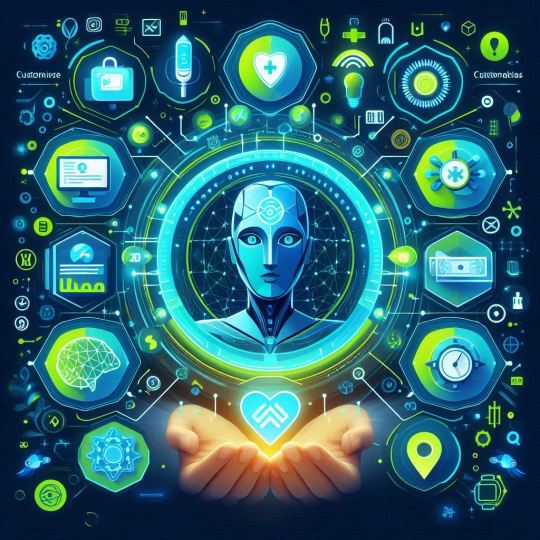
AI has found numerous applications in the healthcare industry, from diagnostics to personalized treatment plans. After all, AI-driven devices can analyze medical imaging material more accurately than humans and thus among other things help to detect diseases such as cancer at an early stage. They will also describe how AI algorithms are used to create tailored treatment strategies personalized for each patient's genetics and clinical past, which helps enable more precise treatments.
3. Edge AI
A major trend in 2024 is Edge AI It enables computer processing to be done at the edge of a network, rather than in large data centers. Because of its reduced latency and added data privacy, Edge AI can be used in applications like autonomous vehicles transportations, smart cities as well as industrial automation. Example, edge AI in autonomous vehicles is able to get and process real-time data, increasing security by allowing faster decision-making.
4. AI in Finance
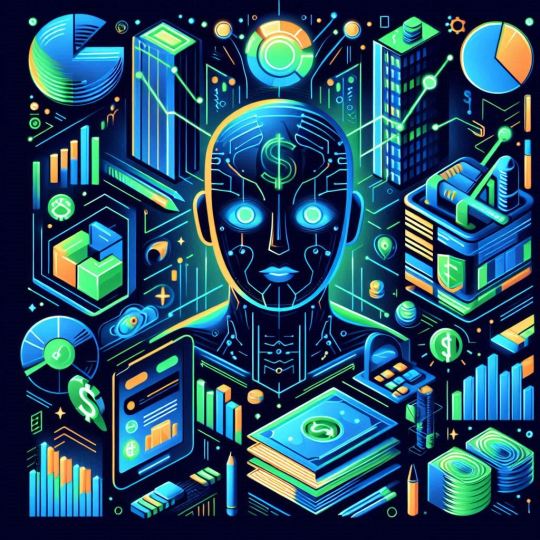
Today, the financial sector is using AI to make better decisions and provide an even stronger customer experience. Fraud detection, risk assessment and customised financial advice have introduced insurance into the AI algorithm. AI-powered chatbots and virtual assistants are now common enough to be in use by 2024, greatly assisting customers stay on top of their financial well-being. Those tools will review your spending behavior, write feedback to you and even help with some investment advices.
5. AI in Education
AI is revolutionizing education with individualized learning. These AI-powered adaptive learning platforms use data analytics to understand how students fare and produces a customised educational content (Hoos, 2017). This way, students get a tailored experience and realize better outcomes. Not only that, AI enabled tools are also in use for automating administrative tasks which shortens the time required by educators on teaching.
6. AI in Job Hunting
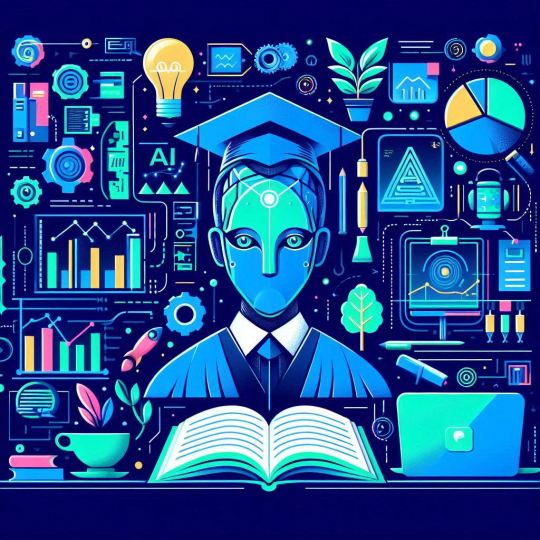
This is also reverberating in the job sector, where AI technology has been trending. With tools like Canyon AI Resume Builder, you can spin the best resumé that might catch something eye catchy recruiter among a dozen others applications he receives in-between his zoom meeting. Using AI based tools to analyze Job Descriptions and match it with the required skills, experience in different job roles help accelerating the chances of a right fit JOB.
7. Artificial Intelligence in Memory & Storage Solutions
Leading AI solutions provider Innodisk presents its own line of memory and storage with added in-house designed AI at the recent Future of Memory & Storage (FMS) 2024 event. Very typically these are solutions to make AI applications easier, faster and better by improving performance scalability as well on the quality. This has huge implications on sectors with substantial data processing and storage demands (healthcare, finance, self-driving cars).
Conclusion
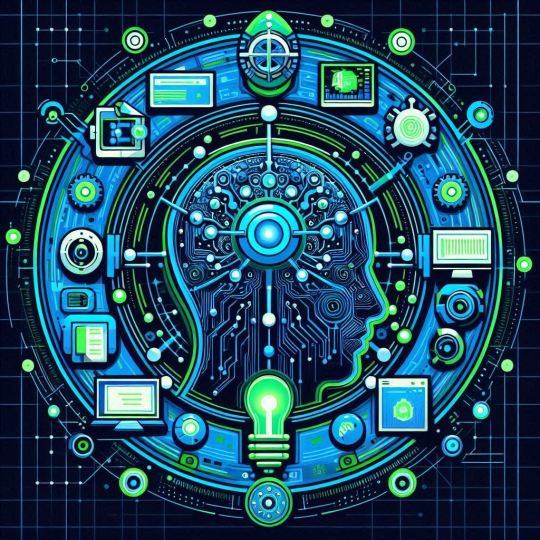
2024 — Even at the edge of possible, AI is revolutionizing across many industries. AI is changing our lives from tailored chatbots and edge AI to healthcare, finance solutions or education and job search. This will not only improve your business profile as a freelancer who create SEO optimized content and write copies but also give your clients in the writing for business niche some very useful tips.
#ai#ai in healthcare#ai in finance#ai in wealth management#ai in business#AI trends#artificial intelligence#advanced technologies#innovation#technological advancements
4 notes
·
View notes
Text
Healthcare Industry with Custom AI Software Development - SSTech System
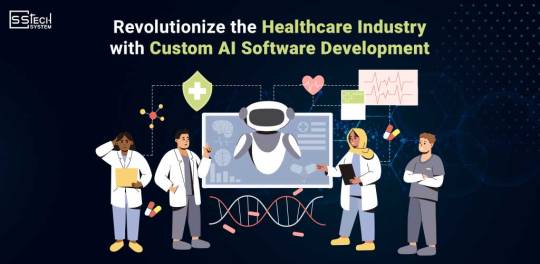
We are living in an era of technology. By glancing around, it is obvious that technology has affected every inch of our lives. Artificial Intelligence (AI) is the contemporary technological trend. It is reshaping the entire landscape. Healthcare is no exception. AI Software Development of today is having a great influence on how medical care is delivered nowadays.
AI-driven web development has brought a very important change in the way patients are diagnosed. It has not only changed the way doctors diagnose and treat patients but also how patients manage their health. Custom AI software development truly has been revolutionized as the game-changer. It also provides a good foundation for creativity and saving.
Would you like to find out about the ways AI is transforming the healthcare sector?If yes, read on! In this article, we are going to expose the way AI is changing healthcare.
AI & Healthcare Web Development
AI in Healthcare can be a very effective option of efficient healthcare. It can empower the healthcare sector more than ever before. It improves medical outcomes. This adds to the fact that it improves operations and results in cost and time savings. Well, it is not just a passing fad, but it is a trend that will remain forever.
According to data, the worldwide AI market is poised for remarkable growth. It is set to grow at an anticipated compound annual growth rate (CAGR) of 37.3% between 2023 and 2030. By 2023, it is expected to soar to a staggering $1,811.8 billion, showcasing the immense potential and rapid expansion of the AI industry.
With the emergence of AI, healthcare businesses are quickly shifting to custom AI software. It empowers them to make the best of the power of AI tailored. They can tailor the solutions as per their unique requirements.
Are you also planning to level up your healthcare business? If so, AI software development can be beneficial. Wondering how? Let’s move to the next section, where we will tell you some key benefits of custom AI software development.
Benefits Of Custom AI Software Development
AI is growing massively. It has impacted businesses across sectors. If we talk about Healthcare, AI has made things super easy. Below are some key benefits of AI software development:
Enhanced diagnostic accuracy:
Custom AI solutions for your healthcare business enable to make the analysis of large amounts of medical data. It is also able to analyze patient records, laboratory results, and imaging scans.
This however is not the only advantage; AI algorithms are also able to uncover patterns. Moreover, it can recognize abnormalities which human eyes may miss. Generally, this brings about better diagnoses and prompts treatment.
Personalized treatment plans:
AI-driven insights assist healthcare professionals in the creation of individualized treatment plans. They may personalize medical solutions to patients’ needs. It harnesses patient data, genetic information, and treatment history. It assists in suggesting tailored strategies.
Improved operational efficiency:
AI-enabled automation decreases clerical duties. For instance, it assists with appointment scheduling, billing, and inventory management. Thus, they can devote more time to patient care. It also helps in the integration of AI into the existing workflow. It will increase efficiency and productivity in the organization as a whole.
Predictive analytics:
AI has the superior predictive power. Developing AI healthcare software can pre-empt disease outbreaks, anticipate bed demand, and identify high-risk patients. It allows for proactive planning and resource allocation. AI algorithms can furnish strategic decision-makers with actionable insights to guide strategic decision-making and resource planning.
Enhanced patient engagement:
AI-driven chatbots and virtual assistants are always on standby to extend support to patients. It answers their questions anytime. Moreover, it provides medication reminders, as well as tailored health suggestions. You can hence build an AI chatbot and integrate it into websites and applications.
We have seen how AI can improve healthcare. However, are you aware of the common AI applications in the healthcare industry? Let’s find out!
Custom AI Solutions for Healthcare
AI can be used in multiple ways. Here, we have listed down some typical custom AI solutions in the medical industry:
AI-enabled diagnostics:
Custom AI algorithms can analyze medical images. It helps radiologists in X-rays, MRIs, and CT scans in detecting abnormalities and identifying disease. AI-powered diagnostic tools offer rapid and accurate results.
Predictive analytics:
Custom AI models can analyze electronic health records (EHRs). It also allows for demographic data, and environmental factors to predict disease trends, identify at-risk populations. With predictive analytics, healthcare providers can intervene proactively.
Remote patient monitoring:
Custom AI software enables remote monitoring of patients with chronic conditions. AI algorithms can analyze real-time data from wearable devices, sensors, and IoT devices to detect deviations from normal parameters and alert healthcare providers to potential issues. It enables timely interventions and preventing complications.
Drug discovery and development:
Custom AI solutions accelerate the drug discovery process by analyzing vast datasets, simulating molecular interactions, and predicting drug efficacy and safety profiles. AI-driven drug discovery platforms expedite the identification of promising drug candidates, reducing costs and time-to-market for new therapies.
AI Software Development Tools
Well! When it comes to AI software development tools, you get a variety of options. Here, we have noted the most important tools that can make a positive difference for your business:
Machine learning libraries:
Tools such as TensorFlow, PyTorch, and sci-kit-learn provide potent frameworks for developing custom AI models tailored to healthcare applications. These libraries offer a wide range of machine-learning algorithms and tools for data preprocessing, model training, and evaluation.
Natural language processing (NLP) tools:
NLP frameworks like spaCy and NLTK enable the development of AI-driven chatbots and virtual assistants for healthcare applications. These tools support text processing, sentiment analysis, and language understanding, facilitating the creation of conversational interfaces for patient engagement and support.
Deep learning platforms:
Deep learning frameworks such as Keras and MXNet offer advanced capabilities for developing custom AI models, including convolutional neural networks (CNNs), recurrent neural networks (RNNs), and generative adversarial networks (GANs). These platforms empower healthcare organizations to leverage state-of-the-art deep learning techniques for image analysis, natural language processing, and predictive modelling.
Custom AI software development has become crucial for businesses. Professional AI/ML developer helps in unlocking the full potential of AI by providing the best-in-class custom healthcare software development services for the healthcare industry.
With AI revolution in healthcare lets you enhance diagnostic accuracy, personalize treatment plans, improve operational efficiency, and empower patients to take control of their health. SSTech System a professional AI software development company, the future of Healthcare holds great potential for innovation, efficiency, and improved patient outcomes.
Final words
AI software development services for healthcare are no less than a paradigm shift in medical technology. It allows for a smarter and more efficient way of medical care and healthcare app development. If you are also a healthcare business and looking to integrate AI into your healthcare business, it is time for you to go professional. So what are you waiting for? Hire AI developers today and take your business to new heights.
#AI Solutions for Healthcare#Hire AI developers#AI software development#software development#sstech system#healthcare industry#Custom AI software#Healthcare Web Development#healthcare#b2b
2 notes
·
View notes
Text
In the United States, call center companies play a pivotal role in providing customer support, sales assistance, technical troubleshooting, and various other services for businesses across a multitude of industries. These companies employ thousands of individuals nationwide and operate through various models, including in-house, outsourced, and virtual call centers. Let's delve into the landscape of call center companies in the USA.
1. Overview of the Call Center Industry:
The call center industry in the USA has witnessed significant growth over the years, driven by the increasing demand for cost-effective customer service solutions and the globalization of businesses. Today, call centers cater to diverse sectors such as telecommunications, banking and finance, healthcare, retail, technology, and e-commerce.
2. Major Players:
Several major call center companies dominate the industry, including:
Teleperformance: One of the largest call center companies globally, Teleperformance operates numerous centers across the USA, offering multilingual customer support, technical assistance, and sales services.
Concentrix: Concentrix is another key player, known for its innovative customer engagement solutions. It provides a wide range of services, including customer care, technical support, and digital marketing services.
Alorica: Alorica specializes in customer experience outsourcing solutions, serving clients in various industries. It offers services such as customer support, sales, and back-office support.
Sitel Group: Sitel Group is renowned for its customer experience management solutions. With a global presence, Sitel operates call centers in multiple locations across the USA, providing tailored customer support services.
TTEC: Formerly known as TeleTech, TTEC offers customer experience solutions, digital services, and technology-enabled customer care. It focuses on delivering personalized customer interactions through its contact centers.
3. Industry Trends:
The call center industry is continually evolving, driven by technological advancements and changing consumer preferences. Some notable trends include:
Digital Transformation: Call centers are increasingly integrating digital channels such as chat, email, and social media to enhance customer engagement and support omnichannel experiences.
AI and Automation: Automation technologies, including artificial intelligence (AI) and chatbots, are being adopted to streamline processes, improve efficiency, and provide faster resolutions to customer queries.
Remote Workforce: The COVID-19 pandemic accelerated the shift towards remote work in the call center industry. Many companies have embraced remote workforce models, allowing agents to work from home while maintaining productivity and efficiency.
Data Analytics: Call centers are leveraging data analytics tools to gain insights into customer behavior, preferences, and trends. This data-driven approach enables them to personalize interactions and optimize service delivery.
4. Challenges and Opportunities:
Despite its growth, the call center industry faces several challenges, including:
Staffing Issues: Recruiting and retaining skilled agents remains a challenge for many call center companies, particularly amid competition for talent and high turnover rates.
Security Concerns: With the increasing prevalence of cyber threats, call centers must prioritize data security and compliance to protect sensitive customer information.
However, the industry also presents numerous opportunities for growth and innovation:
Expansion of Services: Call center companies can diversify their service offerings to meet the evolving needs of clients, such as expanding into digital customer engagement, analytics, and consulting services.
Focus on Customer Experience: By prioritizing customer experience and investing in training and technology, call centers can differentiate themselves and gain a competitive edge in the market.
Globalization: With advancements in technology and communication infrastructure, call center companies can explore opportunities for global expansion and tap into new markets.
5. Future Outlook:
Looking ahead, the call center industry is poised for further growth and transformation. As businesses increasingly prioritize customer-centric strategies, call center companies will play a crucial role in delivering exceptional customer experiences and driving business success.
In conclusion, call center companies in the USA form a vital component of the customer service ecosystem, serving a wide range of industries and helping businesses enhance customer satisfaction and loyalty. With ongoing technological innovations and evolving customer expectations, the industry is poised for continued growth and innovation in the years to come.
2 notes
·
View notes
Text
Trends in AI & Generative AI: Insights from The 2023 AI Summit New York

Last week, I covered the AI Summit in New York. I was excited to learn about the trends in AI and generative AI and to see some commercial applications of these new technological advancements.
Patrick Murphy of UAB led the AI Exhibitor hub. Patrick shared insights from his research on Entrepreneurship. He shared how start-ups use AI, and Generative AI to scale up and bring products to market.

Generative AI is being used in the following eight ways:
Content and Asset Generative
Automated Processes
Ideation
Financial Management
Project Design
Optimized Structures
Acceleration and incubation
Ethics and Risk Management.
There was a pitching completion where start-ups did pitches in multiple rounds. At the beginning of the competition, they received advice from judges on best practices.

One of the start-ups that was of interest was Botwise. Jan Nowak shared how his team shared a use case on how they leveraged Language Learning models (LLM)using statistics and GPT solutions for rapid automation in customer service for Mylead.global is a platform that allows influencers to earn money. As a result, MyLead.global was able to screen influencers faster and better for their big brand clients.

AI-Powered Use Cases from across the board panel discussion
Leaders Saira Kazmi Ph. D. (CVS Health), Matthew Blakemore (Creative Industries Council) Taha Mokfi (HelloFresh), Kriti Kohli (Shopify), and Kris Perez (Data Force) share how they use chatbots, improving both the buyer and seller experience using AI. How AI can be used in video games to identify levels of violence and how AI can improve in healthcare and Radiology reducing the amount of time images are read while improving accuracy and detail.
Another interesting Panel was by Tim Delesio CTO of techolution

Tim asked What’s driving the explosive rise of AI all of a Sudden?
The answer is the economics of the labor market.
On the demand side, he cited labor shortages and persistent high inflation.
On the supply side, he cites the rise of ChatGPT and, major scientific and Technological breakthroughs in the past five to seven years.
He shared trends in AI for 2024 that include:
Physical Labor with AI to help deliver small batch sizes with high-precision quality control
Improved customer engagement by providing a new generation of customer service agents using Generative AI
Tim demonstrated some of these trends when he ordered a soda using an AI-powered robotic arm.
youtube
The booth had another machine showing how AI can enhance inventory management when items are ordered.
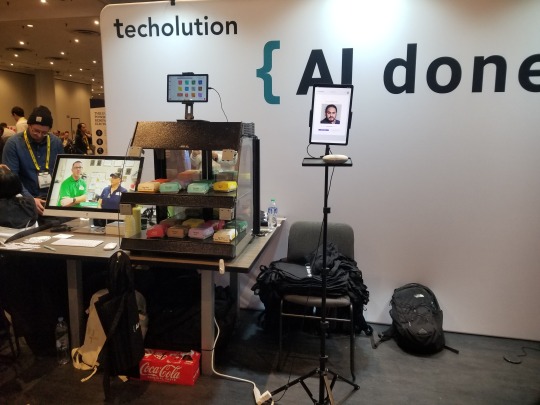
I was amazed to see some AI Tech that techolution brought to the marketplace.
On that note, I saw an AI-powered Kiosk by Graphen where a man ordered his food and paid. This company is using AI to revolutionize all industries.
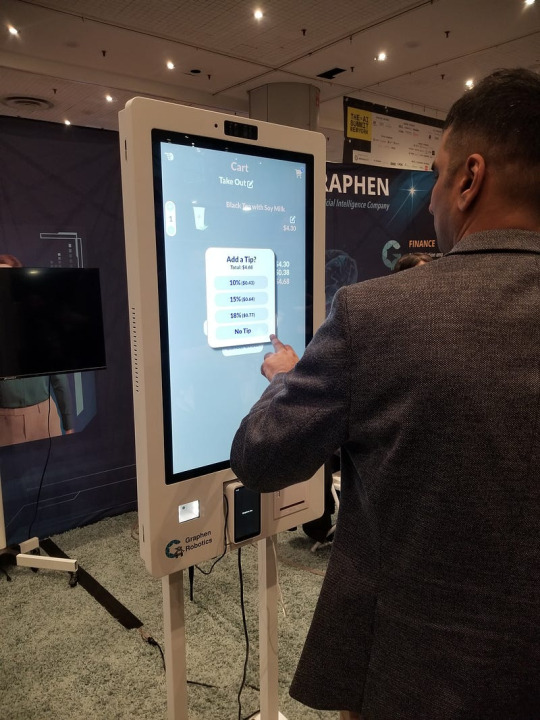
Man orders food AI Kiosk

Man pays for food at AI Kiosk
There were so many great talks and exhibits.
youtube
Additional pictures can be found on Instagram.
I want to thank the AI Summit for having me as their guest. If you want to use AI and Generative to improve business outcomes, sign up for the AI summit in your city.
What do you think is next for AI and Generative AI?
Comment and share below.
Additional pictures can be found on Instagram.
5 notes
·
View notes
Text
How AI Agent Development is Revolutionizing the Future of Autonomous Systems and Business Automation
In today’s rapidly evolving technological landscape, the development of artificial intelligence (AI) agents is revolutionizing the way businesses operate and how autonomous systems function. These intelligent agents are capable of making decisions, learning from data, and performing tasks without constant human intervention. As AI agent development continues to advance, industries across the globe are witnessing unprecedented levels of efficiency, innovation, and automation.
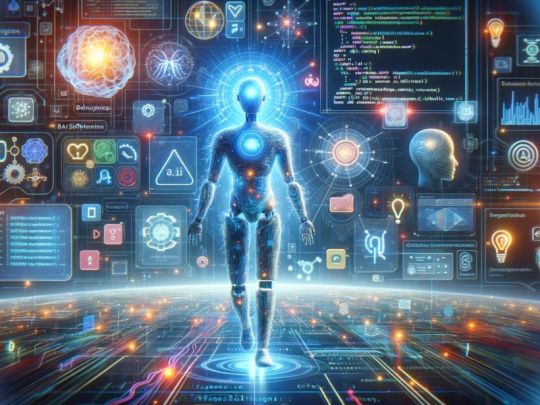
What Are AI Agents?
AI agents are software entities that utilize machine learning, natural language processing (NLP), computer vision, and other AI technologies to perform tasks autonomously. These agents can operate independently or collaboratively to solve complex problems, make decisions, and interact with users or other systems. From virtual assistants to autonomous vehicles, AI agents are becoming essential components of modern technology ecosystems.
Key Applications of AI Agent Development
1. Customer Service Automation
AI agents are transforming customer service by providing instant, accurate, and personalized responses. Virtual customer assistants and chatbots powered by AI can handle a wide range of inquiries, freeing up human agents to focus on more complex issues. Companies like Klarna and other global leaders have adopted AI-powered customer service solutions to enhance user experiences.
2. Supply Chain and Logistics
AI agents are optimizing supply chain operations by predicting demand, managing inventory, and automating warehouse processes. Autonomous delivery robots and route optimization algorithms are just a few examples of how AI is revolutionizing logistics.
3. Financial Services
In the financial sector, AI agents are streamlining operations through automated fraud detection, risk assessment, and customer engagement. These agents analyze vast amounts of data to make accurate predictions and recommendations, enabling faster and more informed decision-making.
4. Healthcare and Diagnostics
AI agents are playing a pivotal role in healthcare by assisting with diagnostics, personalized treatment plans, and patient monitoring. They can analyze medical records, identify potential health issues, and even provide virtual consultations.
5. Autonomous Vehicles
The development of AI agents is a driving force behind autonomous vehicles. These agents process real-time data from sensors, make split-second decisions, and navigate complex environments, paving the way for safer and more efficient transportation.
The Role of AI Agent Development in Business Automation
AI agents are at the core of business automation, helping organizations streamline operations, reduce costs, and enhance productivity. Here’s how AI agent development is reshaping business processes:
Enhanced Decision-Making: AI agents can analyze large datasets and provide actionable insights, enabling businesses to make data-driven decisions.
Process Automation: Routine tasks such as data entry, report generation, and scheduling can be fully automated, allowing employees to focus on strategic initiatives.
Personalized Marketing: AI agents can analyze customer behavior and preferences to deliver personalized marketing campaigns that increase engagement and conversion rates.
Predictive Maintenance: In manufacturing, AI agents can predict equipment failures and schedule maintenance, minimizing downtime and operational costs.
Challenges and Ethical Considerations
Despite their numerous benefits, the development and deployment of AI agents come with challenges and ethical considerations:
Data Privacy and Security: Ensuring the privacy and security of user data is crucial as AI agents rely on vast amounts of information to function effectively.
Bias and Fairness: AI agents must be trained on diverse datasets to avoid biases and ensure fair decision-making.
Job Displacement: The automation of tasks raises concerns about job displacement. However, it also creates new opportunities for upskilling and reskilling employees.
The Future of AI Agent Development
As AI agent development continues to evolve, we can expect even more sophisticated and versatile applications. The integration of AI agents with emerging technologies such as the Internet of Things (IoT), edge computing, and blockchain will unlock new possibilities for autonomous systems and business automation.
Businesses that embrace AI agent development will be better positioned to adapt to changing market demands, improve operational efficiency, and deliver superior customer experiences. By addressing challenges and adopting ethical practices, the future of AI agent development promises to be both innovative and responsible.
Conclusion
The revolution driven by AI agent development is just beginning. From transforming customer service to enabling autonomous vehicles, AI agents are reshaping industries and redefining the future of work. As organizations continue to invest in this transformative technology, the potential for innovation and automation will only grow, ushering in a new era of intelligent, autonomous systems.
0 notes
Text
Top Data Science Skills Employers Look for in 2025
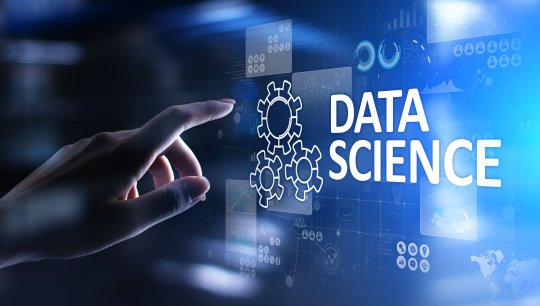
The field of data science is evolving rapidly, and with 2025 on the horizon, employers are looking for highly skilled professionals who can drive data-driven decisions.
Whether you’re an aspiring data scientist or a seasoned professional, staying ahead of industry demands is crucial. But what skills do employers prioritize when hiring data scientists in 2025?
In this blog post, we’ll explore the must-have data science skills that will set you apart in the competitive job market. From programming to business acumen, mastering these skills can help you land top-tier data science roles.
Programming Languages and Software Proficiency
1.1 Python and R
Python is still the leading language in data science because of its flexibility and wide libraries such as Pandas, NumPy, and Scikit-learn. You are expected to be skilled in Python for data manipulation, machine learning, and deep learning.
R is preferred for statistical analysis and visualization. If you are working in academia or in specialized fields such as bioinformatics, then R knowledge will prove to be an added advantage.
1.2 SQL and NoSQL Databases
The employers are looking for data scientists who can work efficiently with structured and unstructured data. SQL is used for querying relational databases, and NoSQL databases like MongoDB and Cassandra are increasingly relevant for handling big data.
1.3 Cloud Platforms
Cloud computing skills are highly valued, with platforms like AWS, Google Cloud, and Microsoft Azure offering scalable solutions for data storage and processing. Employers look for professionals who can deploy models and manage data pipelines on these platforms.
Machine Learning and Artificial Intelligence
2.1 Supervised and Unsupervised Learning
Understanding the core concepts of supervised and unsupervised learning is non-negotiable. Employers expect you to build and optimize models for classification, regression, clustering, and anomaly detection.
2.2 Deep Learning
With AI-driven applications on the rise, deep learning skills are more relevant than ever. Proficiency in frameworks like TensorFlow and PyTorch will make you a sought-after candidate.
2.3 Natural Language Processing (NLP)
As businesses rely on text data increasingly, NLP skills are considered very desirable. Employers would look for skill sets in aspects of sentiment analysis, chatbots, and classification of text by using libraries such as SpaCy and Transformers. 2.4 Model Deployment and MLOps Knowing how to train a model is only half the requirement; you have to deploy the model as well. Employers value MLOps (Machine Learning Operations), which includes aspects of model versioning, monitoring, and scaling.
Data Manipulation and Analysis 3.1 Data Wrangling
Raw data is often messy, and data wrangling skills are essential to clean, transform, and prepare data for analysis. Employers look for professionals who can handle missing values, outliers, and inconsistencies efficiently.
3.2 Feature Engineering
Creating meaningful features significantly impacts model performance. Employers want data scientists who can derive insights from data and enhance model accuracy through effective feature engineering.
3.3 Data Visualization
Communicating insights effectively is just as important as deriving them. Proficiency in visualization tools like Matplotlib, Seaborn, Tableau, or Power BI is a major plus in an employer’s eyes.
Business Acumen and Soft Skills
Domain Knowledge
Employers prefer data scientists who understand the industry they work in. Whether it's finance, healthcare, or e-commerce, domain expertise allows you to ask the right questions and make meaningful recommendations.
Communication Skills
Technical skills alone will not get you hired. You have to present complex data insights to non-technical stakeholders in a simple and easy-to-understand manner.
Problem-Solving Ability
Employers look for critical thinking and the ability to solve real-world business problems using data-driven approaches.
Collaboration and Teamwork
Data science projects involve cross-functional teams. The ability to work collaboratively with engineers, product managers, and executives is a skill that employers look for in 2025.
Conclusion
Demand for skilled data scientists remains on the rise, so stay ahead of the curve with these key skills. Whether you are looking at enhancings your programming knowledge, fine-tuning your machine learning skills, or scaling up your business skills, staying updated is essential.
Which skill will prove most valuable to data scientists in 2025? Let's discuss in the comments below!
Looking to expand your skill set further? Check out our best institute for data science with placement in Thane to complement your data science expertise and stay competitive in the evolving tech landscape!
#best institute for data science with placement#Best Data Science course in india with Placement#Data Science Weekend Course#Artificial Intelligence Course with Placement Guarantee#Data Scientist Course in india#Machine Learning Classes in india#Artificial Intelligence Classroom Course in india#Machine Learning Course Nearby#data science certification training course in india#data scientist training institutes in india
0 notes
Text
Navigating the Challenges and Opportunities of Website Design in Memphis, TN with AceOne Technologies
In the rapidly evolving digital world, having a well-designed website is no longer optional—it's essential. For businesses in Memphis, TN, the landscape of Website Design Memphis TN offers both exciting opportunities and unique challenges. Whether you are a startup looking to make your mark or an established business aiming to modernize your online presence, understanding these factors can significantly impact your success.
Opportunities in Website Design Memphis TN
Growing Local Business EcosystemMemphis is a hub for diverse industries, from logistics to healthcare. This diversity creates a growing demand for customized website solutions, offering businesses the opportunity to stand out with unique, industry-specific designs.
Mobile-First AudienceWith the increasing use of mobile devices, there’s a tremendous opportunity to create responsive websites that enhance user engagement. Website Design Memphis TN focuses on mobile optimization to ensure seamless experiences across all devices.
Integration of Advanced TechnologiesTechnologies like AI chatbots, interactive UI elements, and data-driven personalization are now within reach. Incorporating these features into your website design can improve user interaction and conversion rates.
Expansion Beyond MemphisWhile Memphis offers a rich market, businesses can also tap into opportunities in nearby cities like Atlanta, GA. Many companies are looking to create websites that cater to audiences in multiple regions, making Website Design in Atlanta GA a growing focus area.
Challenges in Website Design Memphis TN
Keeping Up with TrendsThe digital landscape evolves quickly. Staying updated with the latest design trends while maintaining your brand identity can be challenging.
SEO and Digital VisibilityA beautifully designed website is only effective if people can find it. Integrating SEO best practices during the design phase is crucial for improving search engine rankings.
Balancing Aesthetics with FunctionalityStriking the right balance between an attractive design and user-friendly functionality can be complex. The goal is to create a site that's both visually appealing and easy to navigate.
Security ConcernsAs cyber threats become more sophisticated, ensuring that your website is secure from potential breaches is a significant challenge.
Why Choose AceOne Technologies for Your Website Design?
When it comes to overcoming these challenges and seizing opportunities, AceOne Technologies is your trusted partner. We specialize in Website Design in Memphis TN and also offer tailored solutions for businesses looking to expand into markets like Atlanta, GA.
Contact AceOne Technologies:Phone: (870) 738-9433 / (855) 405-8111 Email: [email protected] Website: www.aceonetechnologies.com
Let us help you create a website that not only looks stunning but also delivers measurable business results.
#WebsiteDesignMemphisTN#WebDesignMemphisTN#WebsiteDesignAtlantaGA#WebDesignAtlantaGA#MemphisWebsiteDesign#AtlantaWebsiteDesign#WebsiteDesignLittleRockAR#LittleRockWebsiteDesign#WebsiteDesign#DigitalMarketingJonesboroAR#MobileAppDevelopmentLittleRockAR
0 notes
Text
Top Benefits of Custom AI Solutions for Healthcare and Finance Sectors
Consequently, custom AI solutions are already becoming the must-have technologies for the current and future development of the vast number of industries, including healthcare and finance. From these specific programs, it is made possible for healthcare management to achieve the intended goals by increasing the effectiveness and reducing costs through AI predictive analytics in healthcare. Similarly in the finance industry, AI for finance is innovating processes in a way where it is adding or improving artificial intelligence function to areas such as AI for fraud detection or improvement in AI in financial prediction of markets. This is especially important for businesses as they try to find ways of standing out from their competitors; AI application development services ensure that new, efficient, and secure solutions are created for each of these important sectors.

Key Benefits of Custom AI Solutions in Healthcare and Finance
1. Improved Decision-Making: When an enterprise custom AI solution is created, it is done specifically to be able to process large quantities of information and generate analysis that will enable healthcare workers and economic analysts to make the right decisions. AI applied in healthcare can help to find out the diseases, suggest the appropriate treatments, and even determine the future health state of the patient. In finance, AI is used to make assessments, manage portfolios, and analyze markets and provide organizations with actionable insights at high speeds and quality.
2. Enhanced Efficiency and Productivity: The increase of AI completes routine and tired operations so that the various healthcare and financial organizations can dedicate themselves to more demanding work. In health care, activities such as entering patient information, appointment setting, and billing are some areas that can be made to adopt technologies that thus allow most of the workers to deal directly with the patients. In finance and banking, uses of AI-enabled chatbots and virtual personal assistants will enable them to respond to clients’ inquiries and conduct simple transactions.
3. Personalized Care and Treatment (Healthcare): The healthcare AI advantage discussed in this post is arguably one of the most notable ones, which is discussed below: Advanced AI actually uses patient data, such as personal history and genetic tests, to come up with the best treatment plan for the patients. Such an approach not only contributes to the better results of treatment but also creates higher value propositions for the business to offer more relevant and effective treatment.
4. Predictive Analytics in Healthcare: One of the most important practical uses of AI in health care is to predict diseases before they reach a critical stage. AI processes patient data collected from the past and can reveal probable diseases with an aim to minimize the severity of possible outcomes. This predictable ability enhances patient protection, decreases re-admission status within health facilities, and enhances effective utilization of resources.
5. Fraud Detection and Prevention (Finance): In the financial industry, the application of artificial intelligence in the identification of frauds is highly important in keeping the industry a fraud free zone. This AI model enables monitoring of transactions and recognition of unreliable activities on a real-time basis. Possible oversights based on convenience are successfully eliminated by this sophisticated system, which minimizes the possibility of financial scams and increases the safety of online transactions for businesses and clients alike.
6. AI in Financial Forecasting: With the help of AI, the organizations are able to predict the financial prospects much more accurately than before with the potential of market trends, customers’ behavior, and financial threats coming in the way. Most of the machine learning models help the organization to figure out historical financial data to see trends and make predictions for the future, which plays a significant role in planning, investment decisions, as well as the management of risks within an organization. AI forecasts enable financial institutions to be proactively positioned to respond to real market dynamics, hence enhancing profitability.
7. Cost Savings: Health care and the financial sector would be the two largest beneficiaries from the cost savings through the incorporation of AI. The elimination of human factors lowers operational costs, and the automation of procedures and streamlined operations form the backbone of benefits AI can bring to business entities. In the context of healthcare, it means cutting overhead expenses, and in finance, the cost of compliance, fraud prevention, and customer support.
8. Scalability: Since custom AI solutions are built to be adaptive in the first place, such solutions warrant scalability; this means that institutions, whether in the healthcare or finance industry, can expand without having to worry about becoming any less efficient. To maintain performance with growing data volumes, AI systems can be scaled up; thus, the potential for businesses can also be scaled up without any issues. This approach helps avoid the situation when the AI-oriented framework becomes no longer well-adapted as the organization develops and its requirements change.
9. Improved Customer Experience: It is impossible to overestimate the role that AI plays in improving the quality of customer experience. Health-wise, with the help of AI virtual assistants, patients can get quick answers to their questions, receive notifications for their appointments, and get recommendations about medication use. In finance, AI consultations help customers in performing transactions, account management, financial planning, and other services that lead to personalized services.
10. Tailored Solutions through AI Application Development: Owing to the application of custom AI solutions, companies get to choose and require the features that are most suitable for the industry. AI Application development services help businesses to create the models that may fit their specific industry needs. In applications ranging from diagnosing diseases to predicting market trends, AI can be honed down to require only what specific companies need to make the most difference.
Conclusion
Custom AI solutions implementation in the field of healthcare and finance lists the advantages starting from a better decision-making process, greater efficiency, and the improvement of customer experience up to a higher security level. In applying artificial intelligence in healthcare, i.e., predictive analytics, and in identity fraud and financial forecasting, there is a possibility of achieving successful results. AI application development services help these industries to create a flexible solution that meets specific business requirements or challenges, and it leads to successful growth.
Read More: Top Benefits of Custom AI Solutions for Healthcare and Finance Sectors
#custom ai solutions#AI predictive analytics#AI predictive analytics in healthcare#AI in financial prediction
1 note
·
View note
Text
AI in Customer Experience: Chatbots, Personalization, and Automation
In today’s fast-paced digital world, AI in customer experience is redefining how businesses interact with customers. From intelligent chatbots handling queries to personalized recommendations based on user behavior, artificial intelligence is streamlining customer engagement and satisfaction. Companies that adopt AI-driven solutions can enhance efficiency, reduce costs, and improve overall customer experience.
This article explores how AI-driven chatbots, personalization, and automation are shaping the future of customer service.
1. AI-Powered Chatbots: Enhancing Real-Time Customer Interaction
Chatbots have revolutionized the way businesses interact with customers. These AI-driven virtual assistants provide instant responses, eliminating the need for long wait times. By leveraging NLP services, chatbots can understand customer intent, respond contextually, and offer human-like interactions.
Benefits of AI Chatbots
24/7 Support: Chatbots ensure round-the-clock assistance, improving response time and customer satisfaction.
Cost Efficiency: Businesses reduce labor costs by automating routine customer service tasks.
Scalability: AI chatbots can handle thousands of customer inquiries simultaneously.
Multilingual Support: AI-powered bots break language barriers, offering global customer support.
Examples of AI Chatbots in Action
E-commerce: AI-driven chatbots assist in product recommendations, order tracking, and refunds.
Banking: Virtual assistants like Erica (Bank of America) help with account queries and transactions.
Healthcare: AI-powered bots schedule appointments and provide health-related FAQs.
With continuous advancements in AI ML development, chatbots are becoming smarter, offering proactive and personalized customer interactions.
2. AI-Driven Personalization: Crafting Tailored Customer Journeys
Personalization is a game-changer in AI-driven customer experience. AI analyzes customer data to provide recommendations, customized content, and targeted marketing campaigns.
How AI Enhances Personalization
Product Recommendations: E-commerce platforms like Amazon and Netflix use AI to suggest products and content based on user behavior.
Dynamic Pricing: AI adjusts pricing based on customer demand, competition, and purchase history.
Email & Chat Personalization: AI curates email campaigns and chatbot responses tailored to user preferences.
Predictive Customer Behavior: AI anticipates user needs and offers relevant suggestions before they even search for them.
With AI ML development, businesses can build deeper relationships with customers by providing highly relevant and personalized experiences.
3. AI Automation: Streamlining Customer Service Operations
AI-driven automation helps businesses optimize workflows and reduce human intervention in repetitive tasks.
Key Areas Where AI Automation Improves Customer Experience
Automated Ticketing Systems: AI categorizes, prioritizes, and routes customer queries to the right department.
Voice Assistants: AI-powered assistants like Alexa and Google Assistant offer hands-free solutions to customer queries.
Smart IVR Systems: AI improves Interactive Voice Response (IVR) by understanding natural speech, reducing the need for manual customer support.
Fraud Detection: AI analyzes transaction patterns to detect and prevent fraudulent activities in real time.
By integrating NLP services and automation tools, businesses enhance efficiency, minimize errors, and accelerate response times.
The Future of AI in Customer Experience
As AI continues to evolve, its impact on customer experience will only grow. Future advancements may include:
Hyper-Personalized AI Assistants that predict user needs even more accurately.
Emotional AI (Affective Computing) that detects customer emotions and tailors responses accordingly.
AI-powered Virtual Shopping Assistants that guide online buyers in real-time.
Final Thoughts
Implementing AI in customer experience is no longer optional but essential for businesses aiming to stay competitive. AI-powered chatbots, personalization, and automation enhance customer interactions, reduce costs, and improve satisfaction. By leveraging AI ML development and NLP services, businesses can create seamless and efficient customer experiences that drive loyalty and growth.
Is your business ready to integrate AI into its customer experience strategy?
0 notes
Text
Artificial Intelligence (AI) and technology:
Artificial Intelligence (AI) and technology have become synonymous with modern advancements, rapidly transforming industries, societies, and economies. From self-driving cars to predictive healthcare, AI’s applications are vast and growing, playing a pivotal role in shaping our future. This integration of AI in technology has opened up new avenues for innovation, but it also brings forward challenges that need to be addressed.
AI, at its core, refers to the simulation of human intelligence in machines that are programmed to think, learn, and problem-solve like humans. Machine learning (ML) and deep learning are subsets of AI that are particularly important in the evolution of this technology. Machine learning allows computers to learn from data and improve their performance over time without being explicitly programmed. Deep learning, a more advanced form of ML, uses artificial neural networks to simulate how the human brain works, enabling machines to perform tasks such as image and speech recognition with remarkable accuracy.
One of the most notable ways AI is transforming technology is through automation. In industries like manufacturing, AI-powered robots and machines have replaced manual labor, allowing for faster, more efficient production. AI-driven algorithms are also enhancing supply chain management by predicting demand, optimizing routes, and reducing costs. In the business world, AI tools are revolutionizing customer service through chatbots that can interact with customers in real-time, providing personalized solutions and support.
In healthcare, AI has the potential to revolutionize diagnostics and treatment plans. Machine learning algorithms can analyze medical data, such as scans and patient histories, to help doctors make more accurate diagnoses. For instance, AI has been used in detecting early signs of diseases like cancer, allowing for earlier intervention and improved patient outcomes. Furthermore, AI is being applied in drug discovery, where algorithms are used to predict how different chemicals might interact with one another, speeding up the research process.
The rise of AI in technology also has significant implications for transportation. Autonomous vehicles, powered by AI, are already being tested on roads, promising to reduce human error, improve traffic flow, and lower carbon emissions. These vehicles rely on a combination of sensors, cameras, and AI algorithms to navigate their environment, recognize obstacles, and make real-time decisions. While still in the testing phase, the widespread adoption of self-driving cars could drastically alter urban planning and the transportation industry as a whole.
In the realm of finance, AI has ushered in the age of fintech. AI algorithms are increasingly being used to predict market trends, identify investment opportunities, and detect fraudulent activities. In addition, AI-powered robo-advisors are providing personalized financial advice to individuals, making wealth management more accessible and affordable. Machine learning is also being utilized in credit scoring systems, offering more accurate assessments of borrowers’ creditworthiness.
However, with these advancements come challenges. One of the most significant concerns is the ethical implications of AI. As machines become more autonomous, questions arise about accountability, privacy, and fairness. For instance, if an AI system makes a harmful decision, who is responsible? Furthermore, the increasing reliance on AI raises concerns about job displacement, as automation could replace many human workers in various sectors.
AI and technology are undoubtedly reshaping the world, but it’s essential for policymakers, technologists, and society to address these challenges thoughtfully. This includes developing regulations to ensure that AI is used responsibly, promoting transparency in decision-making processes, and fostering education and retraining programs to help workers adapt to the changing landscape.
In conclusion, AI and technology are driving significant transformations across industries, improving efficiencies and creating new possibilities. As this technology evolves, it’s crucial to strike a balance between embracing innovation and addressing the ethical, social, and economic challenges that arise. With the right approach, AI can be a powerful force for positive change in the world.
0 notes
Text
What Are the Top Use Cases for AI Agent Development Services?

Artificial Intelligence (AI) agents are transforming industries by automating complex processes, enhancing decision-making, and optimizing business operations. AI agent development services provide businesses with intelligent solutions that can learn, adapt, and execute tasks efficiently. But what are the most impactful use cases for AI agents? Let’s explore some of the top applications across various industries.
1. Customer Support and Chatbots
One of the most widely adopted use cases for AI agents is customer support automation. AI-powered chatbots and virtual assistants can handle customer inquiries, provide real-time support, and even process transactions. These AI agents can be deployed in:
E-commerce for handling order inquiries
Banking and finance for resolving customer account issues
Healthcare for providing initial patient assessments
Benefits:
24/7 customer support
Reduced operational costs
Improved customer satisfaction with instant responses
2. Personalized Marketing and Sales Automation
AI agents can analyze consumer behavior, predict trends, and provide personalized recommendations. Businesses leverage AI-driven marketing automation tools to:
Segment customer data for targeted campaigns
Optimize email marketing strategies
Generate leads and follow-up on prospects automatically
Benefits:
Enhanced customer engagement
Increased conversion rates
Reduced manual efforts in marketing and sales
3. AI-Powered Virtual Assistants
AI-driven virtual assistants, such as Siri, Alexa, and Google Assistant, have revolutionized how users interact with technology. Businesses are integrating AI-powered assistants to:
Schedule meetings and manage calendars
Automate routine administrative tasks
Provide voice-enabled customer interactions
Benefits:
Increased productivity
Seamless task management
Hands-free interactions for users
4. Healthcare and Medical Diagnosis
AI agents play a crucial role in healthcare by assisting in diagnostics, patient monitoring, and medical research. Some key applications include:
AI-powered diagnostic tools for detecting diseases
Virtual health assistants for remote patient monitoring
Drug discovery and development through AI algorithms
Benefits:
Faster and more accurate diagnoses
Reduced burden on healthcare professionals
Improved patient outcomes
5. Financial Analysis and Fraud Detection
Financial institutions use AI agents to detect fraudulent activities, automate trading, and optimize investment strategies. Key applications include:
Fraud detection systems analyzing transaction patterns
AI-powered robo-advisors for investment management
Risk assessment tools for loan approvals
Benefits:
Improved security in financial transactions
Data-driven investment decisions
Enhanced fraud prevention mechanisms
6. Supply Chain and Logistics Optimization
AI agents enhance supply chain management by predicting demand, optimizing routes, and automating warehouse operations. Key implementations include:
Predictive analytics for inventory management
AI-driven route optimization for logistics
Robotic process automation in warehouses
Benefits:
Reduced supply chain disruptions
Cost savings through efficiency
Improved delivery times
7. AI in Legal and Compliance Automation
Legal firms and compliance departments leverage AI agents to automate contract analysis, regulatory compliance checks, and case law research. AI-driven solutions can:
Analyze legal documents and highlight key clauses
Ensure compliance with ever-changing regulations
Automate e-discovery in legal proceedings
Benefits:
Faster legal research and documentation
Reduced human errors in compliance
Time and cost savings for legal professionals
8. Cybersecurity and Threat Detection
AI agents are critical in identifying and mitigating cyber threats. Organizations use AI-powered security solutions to:
Detect and prevent phishing attacks
Monitor network traffic for anomalies
Automate incident response mechanisms
Benefits:
Enhanced security against cyber threats
Real-time threat detection and response
Improved data protection and compliance
9. Smart Manufacturing and Industry 4.0
Manufacturing industries are adopting AI agents to optimize production, maintain equipment, and reduce downtime. Applications include:
Predictive maintenance to prevent machine failures
AI-driven quality control in production lines
Automation of supply chain processes
Benefits:
Increased operational efficiency
Reduced machine downtime
Improved product quality
10. Education and E-Learning Personalization
AI agents in education are transforming how students learn by personalizing content and automating administrative tasks. Applications include:
AI-powered tutors providing personalized learning experiences
Automated grading systems for assessments
Virtual learning assistants for student support
Benefits:
Improved student engagement and learning outcomes
Reduced workload for educators
Scalability in online education platforms
Conclusion
AI agent development services are shaping the future by automating processes, enhancing decision-making, and driving efficiency across industries. Whether in customer service, finance, healthcare, or cybersecurity, AI-powered solutions offer immense value. Businesses that invest in AI agent development gain a competitive edge, unlocking new opportunities for innovation and growth.
Are you looking to integrate AI agents into your business? Contact a reliable AI development service provider today and explore how AI can revolutionize your operations!
0 notes
Text
Best Artificial Intelligence Solutions for 2025
Artificial Intelligence continues to reshape industries, providing businesses with advanced tools to improve efficiency and decision-making. As AI technology progresses, companies are exploring innovative solutions to maintain a competitive advantage. This blog highlights some of the best AI solutions for 2025 and how they are shaping the future of business.

AI-Powered Automation
Automation has become a fundamental part of modern business operations. AI-driven automation enhances productivity by reducing manual tasks and streamlining workflows. From chatbots handling customer service to robotic process automation (RPA) optimizing back-office tasks, AI is making operations more seamless. Companies adopting these solutions benefit from reduced costs and improved accuracy.
Natural Language Processing (NLP)
NLP enables machines to understand and generate human language, making interactions more intuitive. Businesses are leveraging NLP for sentiment analysis, content generation, and real-time language translation. AI-powered virtual assistants are improving user experiences by providing accurate and relevant responses to customer queries. The refinement of NLP models in 2025 is making these solutions even more effective.
Predictive Analytics
Predictive analytics uses AI to analyze data and forecast future trends. Businesses rely on these insights to make informed decisions in marketing, finance, and supply chain management. By identifying patterns and predicting consumer behavior, companies can optimize their strategies and improve performance. AI-driven predictive models are becoming more sophisticated, offering greater accuracy in forecasting.
AI in Cybersecurity
Cyber threats are evolving, making AI-driven security solutions crucial for businesses. AI enhances threat detection by identifying anomalies and potential attacks in real-time. Machine learning algorithms help security systems adapt to new threats, reducing risks and improving response times. Companies are integrating AI-powered security tools to protect sensitive data and maintain compliance with industry regulations.
AI-Driven Personalization
Personalized experiences have become a priority for businesses seeking to improve customer engagement. AI enables companies to analyze user behavior and preferences, allowing them to deliver tailored recommendations. E-commerce platforms, streaming services, and digital marketing campaigns are leveraging AI-driven personalization to increase customer satisfaction and retention.
AI in Healthcare
The healthcare industry is benefiting from AI in diagnostics, treatment planning, and patient care. AI-powered medical imaging solutions enhance accuracy in detecting diseases, while predictive models assist doctors in recommending treatments. Virtual health assistants are improving patient interactions by providing real-time health monitoring and guidance. AI is playing a significant role in advancing medical research and improving healthcare outcomes.
AI for Business Intelligence
Business intelligence tools powered by AI help organizations extract valuable insights from vast amounts of data. These tools automate data analysis, providing actionable insights that drive strategic decision-making. AI-driven dashboards and reporting systems make it easier for businesses to track performance and identify areas for improvement.
AI in Finance and Banking
Financial institutions are using AI to optimize operations and enhance customer service. AI-powered chatbots assist clients with transactions, fraud detection algorithms identify suspicious activities, and automated trading systems improve investment strategies. AI is also helping banks personalize financial products based on customer behavior and risk assessments.
AI in Supply Chain Management
Supply chains are becoming more efficient with AI-driven solutions that optimize inventory management, demand forecasting, and logistics. AI analyzes real-time data to predict supply chain disruptions and suggest alternative solutions. Businesses implementing AI in supply chain management experience improved efficiency and reduced operational costs.
AI-Powered Content Creation
AI-generated content is transforming marketing and media industries. AI tools assist in writing articles, generating social media posts, and creating video content. Businesses are using AI-powered platforms to streamline content production while maintaining quality and engagement.
Malgo: A Leading Artificial Intelligence Development Company
Malgo is at the forefront of AI development, providing advanced solutions for businesses across various industries. With expertise in AI automation, predictive analytics, NLP, and cybersecurity, Malgo helps companies integrate AI into their operations effectively. The company’s AI-driven innovations support businesses in optimizing processes, enhancing security, and improving customer interactions.
Conclusion
AI solutions drive efficiency and innovation across industries. From automation to predictive analytics, businesses use AI to improve decision-making and operational performance. As AI technology evolves, companies that adopt these solutions will stay competitive in 2025 and beyond.
Malgo, a leading Artificial Intelligence Development Company, helps businesses implement AI solutions that drive growth and efficiency. Contact us today to explore the possibilities of AI for your business.
0 notes
Text
Mastering Generative AI: Unlocking Creativity and Innovation
Generative AI, a groundbreaking advancement in artificial intelligence, is revolutionizing industries by enabling machines to create content—be it text, images, or music—that mirrors human creativity. With the rise of tools like ChatGPT, DALL-E, and Stable Diffusion, the demand for professionals skilled in generative AI has skyrocketed globally. This transformative technology is not just reshaping industries but also creating a wave of innovation that empowers businesses and individuals alike.
Why Master Generative AI?
High Demand Across Industries: From marketing and entertainment to healthcare and finance, generative AI is being used to create personalized experiences, streamline operations, and innovate product designs. The ability to craft unique and engaging content is becoming a cornerstone of competitive advantage.
Career Opportunities: Roles like AI Developer, Machine Learning Engineer, and Creative AI Specialist are becoming highly sought after. These positions not only offer lucrative salaries but also provide the chance to work on cutting-edge projects that shape the future.
Business Value: Generative AI enables businesses to reduce costs by automating creative processes and improving efficiency. It allows companies to produce high-quality outputs at scale, revolutionizing traditional workflows.
Market Trends
The generative AI market is projected to grow at a CAGR of 34% over the next five years. Leading companies like OpenAI, Google, and NVIDIA are investing heavily in this technology, creating an ever-expanding job market for skilled professionals. The integration of generative AI into mainstream applications, from chatbots to video game design, signifies its widespread adoption and potential for further innovation.
Benefits of Learning Generative AI
Enhanced Creativity: Learn to build AI models that can write, draw, and compose music, pushing the boundaries of human imagination.
Global Relevance: Skills in generative AI are in demand worldwide, offering lucrative opportunities in various industries.
Problem-Solving Skills: Develop solutions for complex challenges using AI-generated insights, enabling businesses to tackle issues with precision and creativity.
Future-Proof Career: As generative AI continues to evolve, mastering it ensures long-term relevance in the job market.
Advanced AI and Generative AI: The Perfect Combination
Advanced AI encompasses cutting-edge technologies like deep learning, natural language processing, and robotics. When combined with generative AI, these technologies create powerful tools that redefine possibilities. Together, they enable the development of systems that not only analyze and predict but also create and innovate, paving the way for unprecedented advancements.
The Synergy of Advanced and Generative AI
Personalized Experiences: Advanced AI algorithms analyze user data, while generative AI creates tailored content. This combination is revolutionizing customer engagement by delivering hyper-personalized experiences.
Innovative Applications: From virtual assistants to autonomous vehicles, the combination of these technologies is shaping the future. Applications range from AI-driven art to smart home systems that learn and adapt to user preferences.
Efficiency Boost: Automate complex processes with advanced AI and enhance creativity with generative AI, driving productivity and innovation simultaneously.
Market Trends
The global AI market is expected to reach $500 billion by 2030, driven by advancements in generative AI. Industries like e-commerce, healthcare, and gaming are leading adopters. The rise of ethical AI and explainable AI is also shaping market dynamics, emphasizing the importance of transparency and fairness in AI systems.
Benefits of Learning
Competitive Edge: Stay ahead in a rapidly evolving tech landscape by mastering both advanced and generative AI.
Diverse Career Options: Opportunities range from AI Researcher to Data Scientist, offering roles that align with various interests and expertise.
Global Impact: Contribute to innovations that change lives worldwide, from improving healthcare outcomes to enhancing educational tools.
0 notes
Text
AI could be a transformative tool for empowering workers' movements and advancing labor rights, particularly if deployed with intentionality, transparency, and democratic control. Below is a strategic framework for how AI could be leveraged to support a workers' revolution, grounded in real-world applications and ethical principles:
---
### **1. Democratizing Knowledge and Education**
- **AI-Powered Labor Education Platforms**:
Use generative AI (e.g., chatbots, interactive courses) to educate workers about their rights, unionization strategies, and labor laws. For example:
- **Union chatbots** (e.g., [WorkIt](https://www.workitapp.org/)) could answer questions about workplace rights in multiple languages.
- **Personalized training tools** could simulate negotiations with employers or teach strike tactics.
- **Countering Corporate Propaganda**:
AI-driven platforms could debunk anti-union messaging by analyzing employer communications and generating fact-based rebuttals (e.g., exposing wage theft via data scraping).
---
### **2. Organizing and Mobilization**
- **Algorithmic Solidarity Networks**:
AI could map workplaces with high exploitation risks (e.g., low wages, safety violations) and identify ideal targets for union drives. For instance:
- Tools like **[Strike Wave](https://labornotes.org/)** (hypothetical) could predict which industries are ripe for collective action using labor market data.
- **Decentralized communication apps** (e.g., Signal with AI moderation) could securely coordinate strikes across borders.
- **Worker-Owned Social Media**:
AI-driven platforms (e.g., a worker-run alternative to LinkedIn) could connect gig workers, freelancers, and employees to share resources and bypass corporate-controlled networks.
---
### **3. Workplace Monitoring and Accountability**
- **AI Surveillance for Workers, Not Bosses**:
- **Wage theft detection**: Algorithms could analyze pay stubs and hours worked to flag discrepancies (e.g., [Coworker.org](https://www.coworker.org/)).
- **Safety compliance**: Wearable AI sensors could monitor hazardous conditions (e.g., excessive heat, toxic fumes) and automatically report violations to regulators.
- **Whistleblower Protection**:
AI tools could anonymize worker testimony about abuses and securely leak data to journalists or labor boards.
---
### **4. Collective Bargaining and Negotiation**
- **AI Negotiation Assistants**:
- **Contract analysis**: Tools like [ContractAI](https://www.littler.com/) (hypothetical) could compare union demands with industry standards and flag loopholes in employer proposals.
- **Real-time sentiment analysis**: During negotiations, AI could interpret employer body language or speech patterns to detect dishonesty.
- **Global Solidarity Algorithms**:
AI could link labor struggles across supply chains (e.g., connecting Amazon warehouse workers in the U.S. to factory workers in Bangladesh) to coordinate transnational strikes.
---
### **5. Worker-Owned AI Cooperatives**
- **Decentralized Labor Platforms**:
Worker cooperatives could use AI to compete with corporate gig platforms (e.g., Uber, DoorDash). For example:
- **Driver-owned ride-sharing apps** with AI dispatch systems that prioritize fair pay over shareholder profit.
- **Algorithmic profit-sharing**: Transparent AI could ensure equitable revenue distribution in cooperatives.
- **Open-Source Tools for Labor**:
Develop worker-controlled AI tools for tasks like scheduling, resource allocation, and democratic decision-making (e.g., [Loomio](https://www.loomio.org/) with AI facilitation).
---
### **6. Disrupting Exploitative Systems**
- **AI for Universal Basic Services**:
Advocate for publicly owned AI infrastructure (e.g., healthcare, housing, transit) to reduce dependency on exploitative jobs.
- **Sabotaging Corporate AI**:
Ethical hackers could develop AI tools to disrupt automated union-busting systems (e.g., flooding HR surveillance software with false data).
---
### **7. Addressing Intersectional Inequality**
- **Bias Audits for Hiring/Firing**:
AI could expose discriminatory practices in layoffs, promotions, or wage gaps (e.g., [MIT’s Algorithmic Justice League](https://www.ajl.org/)).
- **Language Justice**:
Real-time translation AI could unite multilingual workforces and dismantle barriers to collective action.
---
### **Risks and Ethical Considerations**
- **Corporate Co-optation**: Capitalist firms may weaponize AI against workers (e.g., union-busting algorithms, predictive policing of organizers).
- **Surveillance Backlash**: Employers could retaliate against workers using AI tools.
- **Over-reliance on Technology**: Labor movements must remain human-centric, with AI as a tool—not a replacement for grassroots organizing.
---
### **Real-World Examples**
- **[Cooperation Jackson](https://cooperationjackson.org/)**: A Mississippi-based cooperative using open-source tech to build worker-owned enterprises.
- **[Turkopticon](https://turkopticon.ucsd.edu/)**: A tool that lets gig workers rate exploitative employers.
- **[Fairwork](https://fair.work/)**: Rates gig platforms on labor standards using AI-driven data collection.
---
### **Conclusion**
For AI to empower a workers' revolution, it must be **decentralized, transparent, and governed by labor itself**. This requires:
- **Worker-led AI development**: Unions and cooperatives should build tools, not corporations.
- **Strong data sovereignty**: Protect worker data from corporate capture.
- **Global solidarity**: Open-source AI models that serve the working class worldwide.
As historian Ruth Milkman notes, *"Technology is not neutral—it reflects the power structures that build it."* A workers' revolution must seize AI to dismantle exploitation, not entrench it.
---
Would you like to dive deeper into specific strategies or examples?
0 notes